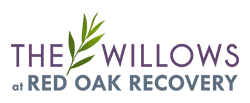Rehab opens the door to a lifestyle change. Whereas in the past your day revolved around drug abuse, you are now actively working toward lifelong sobriety. This is why good-quality care facilities have a strong aftercare component. What is transitional living, and how will it help you achieve your goal of living free of drugs or alcohol?
Working toward Sobriety
 Addiction treatment services help you overcome chemical dependency. You might not have thought it possible to live without the drug. Now, therapists are showing you that you can, indeed, do so. Treatments include:
Addiction treatment services help you overcome chemical dependency. You might not have thought it possible to live without the drug. Now, therapists are showing you that you can, indeed, do so. Treatments include:
- Clinical care that enables you to spend plenty of time with your therapist exploring dysfunction you want to change
- Dual diagnosis treatment for clients with co-occurring mental health disorders
- Trauma therapy, which benefits survivors of assaults and others with traumatic backgrounds
- Meditation as a way to integrate mind, body, and spiritual healing
- Experiential therapies to hone your group interaction skills and boost self-confidence
What is transitional living, and how does it fit in with these services? Most importantly, how necessary is this part of your treatment as you near the end of your stay at rehab?
What is Transitional Living?
A transitional living program is a buffer between the protection of the rehab facility and independent living. During your stay at rehab, you prepare for the return home. You learn to anticipate and disarm triggers. Besides that, you recognize what stressors you will most likely face.
However, you have not tried to weather these situations on your own before. Rather than sending you home with a sink or swim mentality, the rehab facility offers a middle ground. You may move into a roommate situation with peers who are also in recovery. House rules forbid the use of drugs or alcohol.
A house monitor enforces this rule. What is transitional living if not a safe and stable environment? You now have an opportunity to practice sober living outside of rehab. Most importantly, you see what it feels like to budget, share household chores, and look for work.
In the process, you deal with frustration, triggers, and stress. You now have a chance to apply the coping skills you developed during treatment. If there are holes, they soon become apparent. Similarly, now is the time to live your schedule that includes therapy appointments and support group meetings.
Developing these habits now is invaluable for relapse prevention. Furthermore, this is also an excellent opportunity to ease back into family relationships. Besides that, you discover what situations result in stressors. It makes avoiding them or handling them ahead of time more manageable.
Reaching out for Help to People Who Understand Your Needs
You owe it to yourself to make healthy changes in your life. Mental health challenges and trauma do not have to define what you do with your life. What is transitional living but an opportunity to practice the new reality that you crave today? Let caring therapist at The Willows assist you by dialing 855-773-0614 now.


